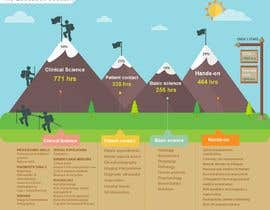Comprehending Nourishment'S Function In Back Pain Management: Beneficial Foods And Foods To Avoid
Comprehending Nourishment'S Function In Back Pain Management: Beneficial Foods And Foods To Avoid
Blog Article
https://whoisachiropractor73840.develop-blog.com/37136038/the-five-primary-benefits-of-seeing-a-chiropractic-physician-attaining-discomfort-relief-and-encouraging-overall-health -Livingston Wheeler
When it involves handling your back pain, the food choices you make can dramatically influence exactly how you really feel daily. https://chiropractic-specialty-cl73840.blogginaway.com/31250604/analyze-the-different-pillow-options-for-neck-discomfort-relief-informed-by-professional-understanding-and-advice-identify-methods-to-enhance-your-rest-experience being able to alleviate your discomfort just by adjusting what you eat. By understanding the function of nourishment in pain in the back administration and recognizing which foods to incorporate or avoid, you can take positive actions towards a much healthier and much more comfy lifestyle. The link between nourishment and back wellness is much more profound than you might recognize-- allow's discover how specific foods can either relieve or aggravate your back pain.
Relevance of Nourishment in Neck And Back Pain
Nourishment plays an essential duty in taking care of pain in the back. Your diet regimen can substantially impact inflammation degrees and overall pain degrees in your back. Eating lower back and side pain balanced diet plan rich in nutrients like vitamins D and K, calcium, magnesium, and omega-3 fats can help reduce inflammation and strengthen bones, which are vital for back health and wellness.
Additionally, maintaining a healthy and balanced weight with proper nutrition can relieve tension on your spine, lowering the risk of pain in the back.
In addition, specific nutrients like antioxidants discovered in fruits and vegetables can help deal with oxidative anxiety and promote healing in the body, consisting of the back muscle mass and spinal column.
On the other hand, eating extreme quantities of processed foods, sweet drinks, and unhealthy fats can add to inflammation and weight gain, aggravating back pain.
Foods to Eat for Back Health
To support a healthy and balanced back, incorporating nutrient-rich foods into your day-to-day meals is crucial. Consisting of foods high in anti-oxidants like berries, spinach, and kale can help reduce inflammation in your back, easing pain and discomfort. Omega-3 fatty acids located in fatty fish such as salmon and mackerel have anti-inflammatory residential or commercial properties that can benefit your back health and wellness.
Furthermore, consuming nuts and seeds like almonds, walnuts, and chia seeds offers important nutrients like magnesium and vitamin E, which support muscle mass feature and decrease oxidative stress and anxiety. Integrating lean healthy proteins such as chicken, turkey, and tofu can help in muscular tissue repair service and maintenance, promoting a solid back.
Don't forget to consist of dairy products or fortified plant-based options for calcium to support bone health. Finally, hydrate with a lot of water to maintain your back discs moisturized and functioning efficiently. By including these nutrient-dense foods in your diet, you can nurture your back and support total spinal health and wellness.
Foods to Avoid for Back Pain
Select preventing processed foods high in added sugars and trans fats when seeking relief from back pain. These types of foods can contribute to inflammation in the body, which may intensify neck and back pain. Say no to sweet snacks sweet, breads, and sugary drinks, in addition to convenience food things like hamburgers, fries, and fried chicken that are frequently packed with trans fats.
Furthermore, steer clear of foods having high degrees of refined carbohydrates, such as white bread, pasta, and pastries, as they can spike blood glucose degrees and potentially worsen swelling in the body.
It's additionally a good idea to limit your intake of foods high in saturated fats, like red meat and full-fat dairy products, as they can add to swelling. Processed foods like deli meats, chips, and packaged treats are usually high in saturated fats and ought to be consumed in small amounts.
Final thought
In conclusion, paying attention to your diet plan and making smart food choices can have a considerable impact on managing pain in the back. By integrating is chiropractor covered by insurance -rich foods like berries, fatty fish, nuts, and lean healthy proteins, and preventing refined and sugary items, you can help reduce inflammation and assistance on the whole back health. Bear in mind, what you consume plays an essential function in exactly how you feel, so make sure to prioritize your nourishment for a healthier back.
